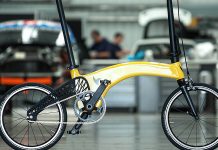NASA (National Aeronautics and Space Administration), is training its astronauts for the forthcoming Mars journey. A new team of astronauts named as “Aquanauts” has been sent to the bottom of the Atlantic Ocean for training. Underwater, the astronauts will be trained for 16 days, and the aim of the training is to prepare astronauts for the future space missions.
The US space agency believes that the sea has extreme conditions which will report whether astronauts can sustain in such complicated situations and the other aim of the mission is that this would heighten the confidence of astronauts for Mars journey in future. NASA has named this NASA NEEMO 21 mission which means NASA Extreme Environment Mission Operations. According to the officials of NASA, the crew and astronauts of the expedition that started on 21st July will stay the Aquarius Reef Base, which is located 62 Ft. below the Atlantic Ocean in the Florida Keys National Marine Sanctuary.
Curiosity Rover Reaches Sand Dunes on Mars
Preparing for the Martian environment, NASA will assign few tasks to astronauts. The crew of the agency will collect samples of marine biology studies, geology, and coral restoration projects. And they will scrutinize the studies for 16 days.
“NEEMO 21 astronauts and crew will pioneer complex tasks on the seafloor utilising the most advanced underwater navigation and science tools which are methodically choreographed to mimic a Mars exploration traverse,” stated NEEMO Project Lead Bill Todd.
NASA will also train the astronauts to survive in extreme conditions when there is a breakage of communication and this is to make then strong in unexpected situations and unpredicted environments. The underwater crew will also test a mini DNA sequencer for use in the International Space Station, as well as telemedicine equipment for future space missions.
NASA’s Juno Mission: First Human Made Spacecraft Intersects Into Jupiter Orbit
“Equipment can fail, communication can be challenging and tasks can take longer than expected. Other tasks go just as planned. All cases are equally beneficial. It’s how we learn and how we are able to assemble all of this together so that someday we’re prepared for the unexpected when we are living on and traversing the Martian surface,” Bill Todd added.



























